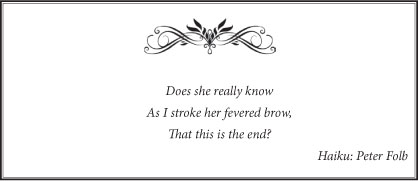Services on Demand
Article
Indicators
Related links
-
 Cited by Google
Cited by Google -
 Similars in Google
Similars in Google
Share
SAMJ: South African Medical Journal
On-line version ISSN 2078-5135
Print version ISSN 0256-9574
SAMJ, S. Afr. med. j. vol.102 n.4 Pretoria Apr. 2012
BOOK REVIEW
Dr Edmund Mxolisi Mankazana. Pp. 164. 2011. ISBN9781456786571. £13.99. www.authorhouse.co.uk
This self-published autobiography presents a fascinating and in-depth account of the life story of a black South African doctor who was born and raised in poverty-stricken rural Transkei, became an anti-apartheid activist in his teenage years and was relentlessly hounded by the security police. He was educated at Fort Hare and at the University of Natal Medical School in Durban where he graduated with an MB ChB degree in 1966. At university, Edmund gradually came to embrace an evangelical Christian faith, something that comes out strongly in this narrative.
The title From Exile to Exile gives a hint of the trajectory of Edmund's life experience - from his forced exile to the UK, to his euphoric return to South Africa after the momentous 1994 democratic transformation and, ultimately, his disillusionment with the politics of the new South Africa that prompted his return to Britain into a 'second exile'. In the Foreword, the Rev. Brian Brown writes of Edmund that 'He sensed that the electoral democracy he helped to secure had not brought the dawning of the participatory democracy for which he longed. He said so and he suffered.'
The book presents a rich anecdotal chronology of his life story from pre-school to medical school; as medical practitioner and community leader under apartheid; as medical practitioner and community leader post apartheid; and his return to a second exile in Britain. It begins with a vivid description of his life as a country bumpkin raised by his beloved grandmother, who eked out a livelihood 'washing and ironing for white folks in Umtata'. At 13, Edmund gained admission to St John's College, an Anglican mission high school in Umtata. A year later his grandmother died, leaving him and his cousins to 'depend on my brother who gambled with dice on the streets to earn money to buy food'. In high school, Edmund joined the ANC as an anti-apartheid activist, and it was there that he had his first brush with the dreaded security police, something that was to continue through university and for the rest of his career in South Africa.
The real story of From Exile to Exile, however, is about Edmund's experiences upon his return from exile to post-apartheid South Africa. Edmund did not want to settle into a traditional medical practice offering one-on-one care to sick people. He was of the view that one could not improve the health of the community without also tackling the problems of ignorance, family dysfunction, drug and alcohol abuse, violence, women's issues and the like. Accordingly and after wide consultations, he founded the Health Development Institute (HDI), a multidisciplinary organisation that pooled the skills of a wide variety of partners including health professionals, spiritual leaders, community leaders, academics and the teaching profession. The HDI, based in Mitchell's Plain, Cape Town, was, by any measure, a highly ambitious if visionary project intended to uplift this depressed community and promote post-apartheid reconciliation. It established diverse community intervention initiatives including the hypertension project, the cervical screening project, and the eye care project. The HDI organised workshops and conferences on psychosocial and human relationship issues in the context of the new democracy, and sought to conduct research on diverse social issues.
With donor funding running out, Edmund approached government for support and was unceremoniously rebuffed. He writes: 'I soon realised that unless one was in the good books of the ruling party, giving its leaders unquestionable allegiance and obedience ... [or prepared] to lick the feet of the ANC hierarchy, one did not stand a dog's chance of being given space ... to exercise one's God given creativity'. Frustrated, Edmund and his family left South Africa on a second exile.
Edmund's contemporaries are sure to find their names in the book. More than that, however, the book will interest young doctors with big ambitions about serving their communities.
Dan J Ncayiyana
Editor, SAMJ















